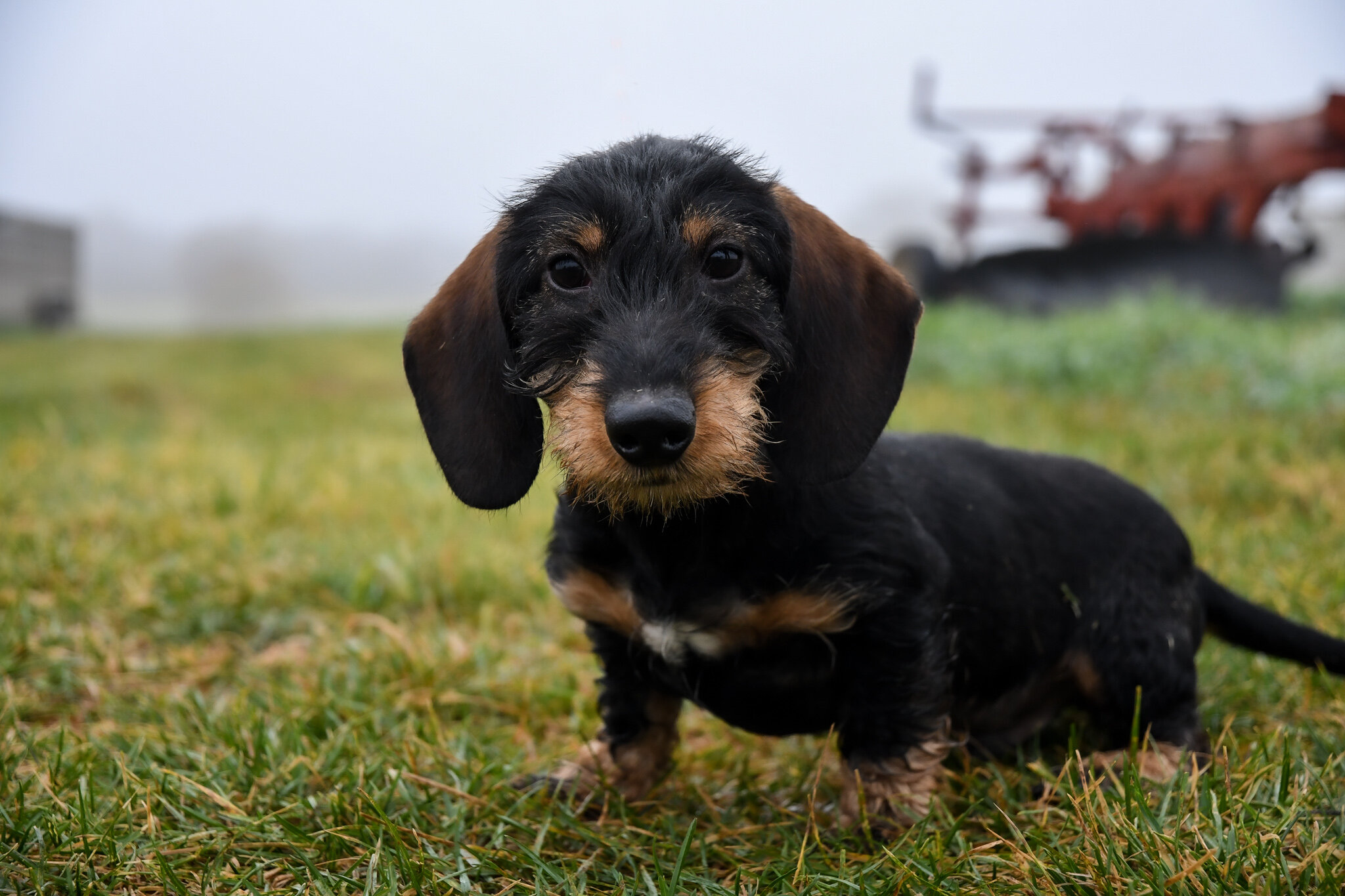Dachshunds: A Paradoxical Hunting Breed
The Dachshund, a small, long-bodied breed renowned for its charming personality and distinctive appearance, may seem an unlikely candidate for the role of a hunter. Yet, concealed beneath their playful exterior lies an intriguing history and a hidden talent for hunting. This essay delves into the complexities of Dachshunds' hunting ability, critically examining their unique characteristics and exploring the multifaceted perspectives surrounding this paradoxical breed.
Origins and History: The Scent Hound Connection
Dachshunds originated in Germany in the 18th century, specifically bred to hunt burrowing animals such as badgers, rabbits, and foxes. Their elongated bodies, short legs, and long, keen noses enabled them to navigate underground burrows effectively and pursue prey with determination. The breed's German name, "Dachs," translates to "badger," a testament to their intended purpose.
Physical Adaptations for Hunting
Despite their diminutive size, Dachshunds possess several physical attributes that enhance their hunting prowess. Their long, muscular bodies provide speed and agility, allowing them to chase after prey. Their short legs enable them to enter burrows and navigate confined spaces where larger hounds may struggle. Additionally, their large, expressive eyes provide excellent night vision, a crucial advantage when pursuing nocturnal prey.
Hunting Instincts and Trainability
Dachshunds are innately driven hunters, exhibiting a natural instinct to track and chase. Their keen sense of smell allows them to follow scents over long distances, while their intelligence and trainability make them receptive to obedience commands. Experienced hunters often train Dachshunds to vocalize when they locate prey, aiding in communication during hunts.
The Hunting Paradox: Ethical Considerations and Modern Role
While Dachshunds' hunting abilities are undeniable, ethical concerns surround the practice. In some countries, hunting with Dachshunds is banned or restricted due to animal welfare concerns. In modern society, Dachshunds are primarily kept as companion animals, and their hunting instincts are often redirected towards other activities, such as scent work or competitive tracking.
Perspectives on Dachshunds' Hunting Ability
Perspectives on Dachshunds' hunting ability vary widely. Some argue that the breed's instincts should be celebrated and preserved, while others contend that hunting with small dogs like Dachshunds is cruel and unnecessary. Humane societies and animal welfare organizations generally discourage the use of Dachshunds for hunting purposes.
Scholarly Research and Credible Sources
Numerous scholarly studies and reputable news articles have examined Dachshunds' hunting behavior. A 2018 study published in the journal Animal Cognition found that Dachshunds exhibited high levels of problem-solving abilities and persistence when tracking scents, further supporting their hunting instincts. However, a 2020 article in the New York Times highlighted the ethical concerns surrounding Dachshund hunting in Germany, where the practice remains legal.
Conclusion: A Complex and Controversial Legacy
The Dachshund's hunting ability presents a complex and often controversial topic. While their innate instincts and physical adaptations make them capable hunters, the ethical implications of using small dogs for this purpose cannot be ignored. Modern society has largely moved away from hunting with Dachshunds, but their paradoxical legacy as both playful companions and skilled hunters continues to fascinate. By critically examining the multifaceted perspectives surrounding this breed, we gain a deeper understanding of the intricate relationship between humans, animals, and the natural world.
Why Doberman Pinschers Are Great For First-Time Dog Owners
Cavalier King Charles Spaniels And Their Adorable Expressive Eyes
Australian Shepherds And Their Strong Bond With Their Owners



